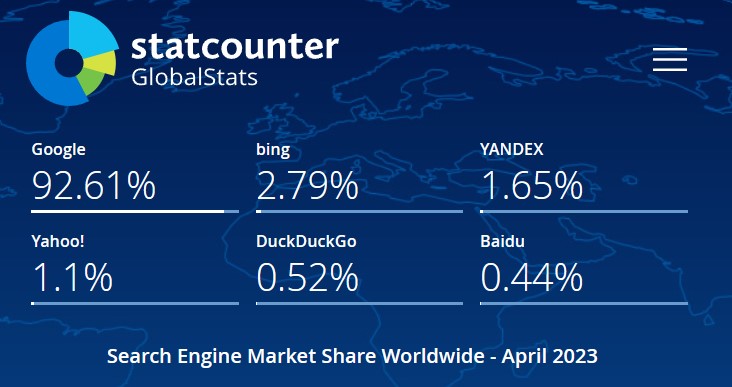
What you need to know
- A new pop-up on Microsoft Edge tries to corral people into switching search engine.
- If you have your default search engine set to Google, widely regarded as superior to Bing, Microsoft will ask you if you want to swap.
- Although we weren't able to reproduce the pop-up in Europe, it seems some users in North America have been receiving it recently.
- Bing has roughly 3% of global search market share, despite efforts to integrate ChatGPT AI into its products.
Recently, some users of Microsoft Edge began noticing a new pop-up that isn't far removed from previous strategies Microsoft has used.
Microsoft content creator, Stardock developer, and generally lovely chap Brad Sams recently took to Twitter (X) to show off Microsoft's latest attempt to get users to switch search engine. For users using Microsoft Edge with Google search set as default, Microsoft will now display a pop-up trying to get them to switch search engine.
The only thing that keeps me on Edge is that I can alt+tab between open tabs...is there a Chrome plugin that enables that? This is anti-user behavior by @MicrosoftEdge pic.twitter.com/JCvRm7PiGVDecember 18, 2023
Microsoft is no stranger to injecting unwanted pop-ups into its systems. Microsoft has attempted to do similar with Microsoft Edge before, and Windows itself, making it difficult to swap default web browsers, search engines, and the like. Windows 11 updates have been accused of removing default settings too in the past, as Microsoft desperately tries to find market share for its struggling search engine.
Nobody wants to use Bing

While Bing has grown in recent years, Bing is still near non-existent on global search market share trends. Google remains by far the most dominant player, edged out only by regional search engines that are practically mandated by the government. Anywhere where Google is freely available, it's utterly dominant, with Bing merely a footnote by any metric.
Microsoft has made a large and significant push to improve Bing's fortunes. It introduced Bing and Windows Copilot into its systems, as well as integrated Bing into ChatGPT itself via a partnership with OpenAI. However, I've ironically seen complaints on the ChatGPT subreddit about Bing's abilities for crawling the web, calling them inferior to ChatGPT's own implementations.
Google is forging ahead with its own AI implementations, codenamed Gemini. Microsoft has criticized Gemini as being inferior to ChatGPT when using the same prompts. Google is trying to shore up deficiencies in its language models (LLMs) by using an algorithm to improve user's prompts before they get fed into the system. By using its user data, Google could potentially provide better results through its Gemini features. However, if platform holders like Bing and Google don't compensate outlets they're effectively stealing traffic from to create answers to these queries, it could lead to cannibalization of data. Twitter's own AI "Grok" was seen replying to prompts as if it were owned by OpenAI recently, which some have called an example of model collapse. If AIs are simply using other AIs to train themselves, then the data becomes cyclical and junky, when compared to using data shared by humans via the web.
This is a set of reasons why Microsoft may be eager to get Bing's market share up, even if it pisses off users in the process. Google's social graph data gives it a significant advantage in building "wrapper" codes for its LLMs tailored specifically to individual users. Bing has very little access to similar data by comparison. If that was true, though, why has Microsoft gutted Microsoft Rewards, which gives people points towards vouchers for using Bing? I guess forcing users via a pop-up is a lot cheaper, to be fair.
Seriously, though, I hope Microsoft can get it right some day, because Google seriously needs competition. Google is currently battling multiple anti-trust cases across the globe for abusing its position to promote its own products. It could be argued that Google's dominant position led to the death of Windows Phone, and various other competing platforms over the years across multiple vertices.
But hey, you can use Microsoft's models to build a Funko POP! figurine of yourself, which is pretty cool, right?







